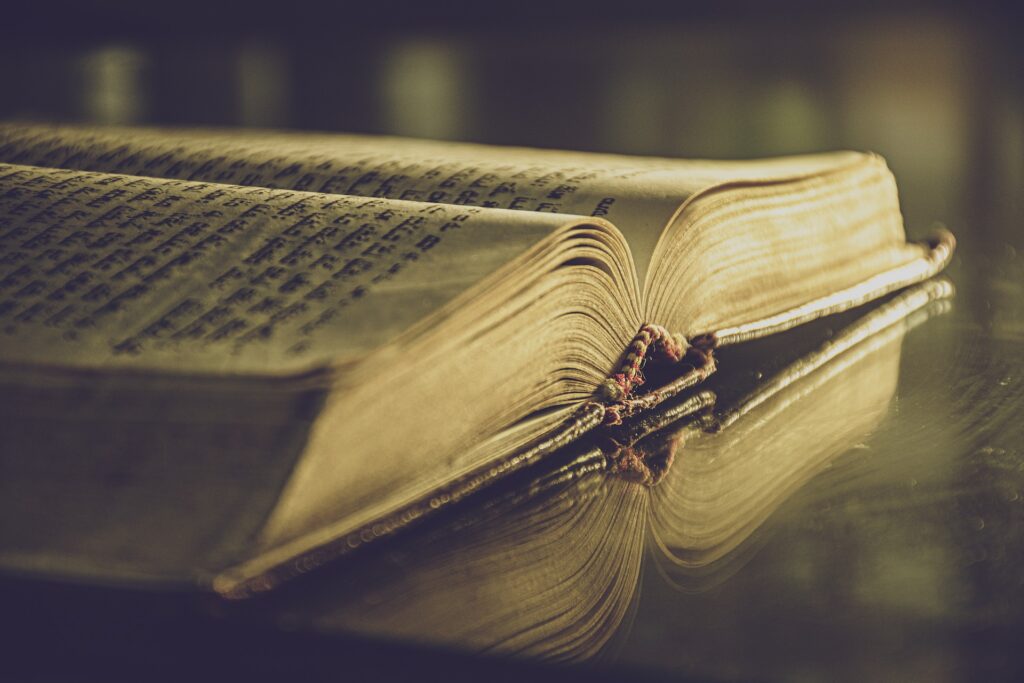This page may contain affiliate links, which means I may receive a commission from purchases made through links.
It was registration day for my senior year of Bible college at inCharacter School of Ministry. I packed my bags and loaded my car. As I was walking out the door of my mom’s house, my phone rang. It was the bank.
“Mr. Brannon, unfortunately, since you don’t have a credit history, you were not approved for the loan.”
My heart sank.
For the first three years, my family and my church helped me cover tuition. I also contributed out of my meager part-time, minimum-wage summer job at a frozen yogurt shop. This time, however, my mother and my sister (the largest contributors) informed me that they couldn’t help like they had.
My Bible college experience was fairly inexpensive. However, five to six thousand dollars is a lot for a lower-middle-class family to afford out of pocket. The school was not able to provide loans or grants or scholarships. They also did not allow us to hold jobs due to the immersive nature of the program. Working would have caused students to miss out largely on the purpose of being there. They were there to spend focused time growing as disciples of Jesus and learning to do team ministry.
While I greatly appreciate my experience and wouldn’t trade it for anything, this made for a stressful summer every year. And this particular summer, even more so. I worked all summer, preached at various churches, and prayed frequently, with more tears, as registration day approached.
God Came Through
With summer ending, I only raised $2000 and still needed $4000 more. As a last-ditch effort, I applied for a loan. All summer, I prayed, “Lord, I am trusting you to provide for me to do what you have called me to do.” Yet, as time ran out, that trust wavered. I wept bitterly as I considered that I would have to drop out of school a year short.
As the banker told me I was denied, I told my mom and my sister. They stared at my phone with me, as we all felt the awkwardness of God letting me down.
But that assessment was wrong.
“But,” the banker said, “if someone with a decent credit history is willing to cosign with you, we can get you your loan today.”
At first, this seemed unhelpful. Most people wisely refuse to cosign loans. Nobody wants unreliable people to put them in a bad position. But my sister, who had been working on her credit for a few years, heard this and volunteered. We got the money, paid the school, and moved my stuff into the dorm. I then graduated, got a full-time ministry position, and two years into a three-year loan, paid it all off.
Since then, I have found that financial strain no longer intimidates me like it once did. And that certainly is not because I have none. My life has been one of tight budgets and unexpected expenses for the last 3 or 4 years. But seeing what God did for me then has caused me to believe his word. Philippians 4:19 says, “My God will supply every need of yours according to his riches in glory in Christ Jesus.”
A Father’s Faith
In John 4, we find another man who needed a miracle. Jesus had just been in Samaria teaching about the kingdom of God, and then it says, “After the two days he departed for Galilee” (John 4:43). This begins his great ministry in Galilee, documented in each of the four gospels.
John goes on to tell us, “When he came to Galilee, the Galileans welcomed him, having seen all that he had done in Jerusalem at the feast. For they too had gone to the feast. So he came again to Cana in Galilee, where he had made the water wine. And at Capernaum there was an official whose son was ill. When this man heard that Jesus had come from Judea to Galilee, he went to him and asked him to come down and heal his son, for he was at the point of death” (John 4:45-47). So all of Galilee was excited that he came to them, but this father was more than excited; he was desperate.
Most often, when desperate people seek out Jesus for rescue and healing, his response is immediate and tender. Here, on the other hand, Jesus takes a moment to teach the man (and us) something. He says, “Unless you (plural) see signs and wonders you (plural) will not believe” (John 4:48, parentheses added). Jesus was speaking about the people of his generation, not just this man as an individual.
It seems to go over the official’s head. I can hear the slight frustration in his voice in verse 49, “Sir, come down before my child dies.” I imagine him thinking, “Why is this man who heals others not coming to heal my son?” Nevertheless, Jesus heals his son, not by going, but by a word: “Go; your son will live” (John 4:50).
Seeing is Believing
Verse 50 then says, “the man believed the word that Jesus spoke to him and went on his way.” He went home, and on his way, he met his servants. He found out his son was healed in the same hour that Jesus spoke this promise to him. Then we are told, “And he himself believed, and all his household” (Verse 53). We are told here that he believed Jesus when he spoke. Then, seeing that his word came to pass, he believed again, along with his family.
So what do we make of Christ’s statement that unless people see signs and wonders they will not believe? Unfortunately, many of my brothers and sisters in non-charismatic circles default to understanding this statement as a chastisement similar to when he speaks against the Pharisees in Matthew 12:38-41. But there is a difference between the two groups. Those Pharisees and scribes had already seen and heard of many signs of his, yet they rejected him as a sinner, a demoniac, a false prophet, etc., because he did not subscribe to their human traditions. He had already given them signs, and they opposed him.
Believing Twice
To this humble father, coming to Jesus for help, Jesus was giving us insight into his goodness and patience. Jesus’ larger message in John’s gospel is one about belief in him, yet it does not say that this man believed in him. It says that he “believed the word,” then it says again that he believed in him after having seen the sign.
Obviously this man had heard about Jesus’ miraculous power from others, since he came to him for help. Yet he had his assumptions about how that would take place. He wanted Jesus to come with him, but Jesus wanted him to act on faith. He was forced to take Jesus at his word. Yet, after obeying the word, he found that Jesus was faithful to it. This sign served to take away any doubt that may have been present. In his human weakness, he found a merciful Christ, who healed his son in order that he might believe.
Signs Matter
John 4:54 says, “This was now the second sign that Jesus did when he had come from Judea to Galilee.” The first sign was when he turned water to wine in Cana. There would come 5 more signs in John that “manifested his glory” (John 2:11) to the people involved. They served the very purpose of stirring up faith in those who would see them.
Although my financial need in college was nothing in severity compared to the illness of this official’s son, this parallel still remains: Seeing God come through causes people to believe all the more. The official had a measure of faith that enabled him to trust Christ’s word and obey. But when Jesus came through, that experience strengthened his faith. In the same way, my experience of God’s provision “at the midnight hour” strengthened my faith. Now, when it is tested in the future, I am all the more prepared to trust him.
The Mercy of Jesus
Jesus similarly had mercy on one of his apostles, Thomas, who was unable to believe Jesus had been raised from the dead until seeing and touching his wounds. The Lord appeared to him, and he believed. He then said to him, “Have you believed because you have seen me? Blessed are those who have not seen and yet have believed” (John 20:29). Cessationists use this passage as a chastisement against the charismatic assertion that Christ desires the church of all ages to do signs and wonders in his name. Yet, that is not the purpose of Christ’s statement. Yes, it is an encouragement to not demand signs to trust Christ, yet it is also an encouragement to the doubter that Christ cares enough to meet them where they are.
Scripture and history show us that faith without seeing is the exception. More frequently, people need God to show himself through miracles of intervention or providence. Jesus frequently shows mercy on the doubt of those who want to believe. Jesus heals everyone in the gospels who comes to him. He works miracles through the apostles to confirm the gospel to the nations (Mark 16:20). He promises the powers of signs to those who believe the apostles (Mark 16:17-18). This pattern is evident throughout the book of Acts, the model to us of what Christian life ought to be like.
No charismatic or Pentecostal Christian would say that believing without seeing is not better than believing because of seeing. Jesus obviously makes a comparison that elevates the former over the latter. And I am not saying that the need for signs is good. Yet, John 4:48 shows that needing signs to believe is the normative human experience and is not the same as the arrogant unbelief of the Pharisees and scribes.
Faith Without Sight
But didn’t Paul say, “Walk by faith, not by sight”? Sort of. But Paul also healed the sick (Acts 28:8), raised the dead (Acts 20:9-10), and saw heavenly mysteries he was not allowed to speak about (2 Corinthians 12:1-10)? When Paul says “not by sight” he is referring to the fact that Jesus is not physically with us, as the complete statement says, “We know that while we are at home in the body we are away from the Lord, for we walk by faith, not by sight” (2 Corinthians 5:6-7).
Paul didn’t believe the gospel until Jesus blinded him and called him on the road to Damascus, so faith is clearly not believing with no evidence or experience. To walk not by sight is not walking blind. This faith is built on previous revelation. Paul emphasizes staying faithful when we don’t yet see the fulfillment of God’s Word. We don’t see Jesus, but we will. We know this, not because we are just blindly indoctrinated, but because, like the official whose son Jesus healed, we have “tasted and seen” that he is faithful to his promises (Psalm 34:8).
In the beautiful mercy of Jesus, in his desire to save his people from sin, he didn’t just heal this one child and go into hiding. Luke tells us that “Jesus returned in the power of the Spirit to Galilee, and a report about him went out through all the surrounding country. And he taught in their synagogues, being glorified by all.” (Luke 4:14-15). Luke also says in Acts: “God anointed Jesus of Nazareth with the Holy Spirit and with power. He went about doing good and healing all who were oppressed by the devil” (Acts 10:38). It was because of his powerful works and his teaching that people glorified him.
Where is the Balance?
Many who critique the charismatic movement do so rightly when they accuse us of basing our beliefs on experiences rather than Scripture, or just seeking experiences over seeking God himself. This is a sad reality of the church. Yet, we ought not to make the fatal mistake of rejecting the experience of God and conflating knowledge of Scripture with knowing him personally. Our faith is a lived faith; it is an organic faith. We are the Bride of Christ, and our Bridegroom is faithful to his vows.
The balanced faith is one that both stays true to Christ, even when we do not see Christ, yet moves us to seek demonstrations of the power of God for ourselves and for others. We must not seek for signs and wonders without Christ, but seeking the true Christ will lead to signs and wonders among us, and they are meant to confirm the message of the gospel to both us and those around us. And in the times we don’t see the fulfillment of his word, we must hold to it until we do. As Bill Johnson says, “The Holy Spirit gives us power to do miracles and power to endure when the miracles do not happen.”
Signs and wonders increase (and often introduce others to) our faith. If you desire the salvation of those that are lost, begin to pray that God would reveal himself to them by any means. Pray that he would reveal himself to them in miracles, in coincidences of sovereign appointment, or in prophetic words spoken to them by believers, that their doubts would bow to mercy of God’s intervention of signs and wonders, and that they would have no more excuse to turn their hearts away from the Lord.
Footnotes
*If you enjoyed this post, please comment your thoughts down below and consider subscribing to receive updates on new blog posts.



